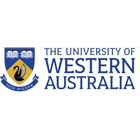Master of Business Analytics
Master of Business Analytics
Enhance your analytical skills in one of the fastest growing fields around the globe. Business analytics is the future: be a part of it through a graduate certificate or master’s qualification. Undertaking the master’s course will equip you with deeper analytical skills needed to extract meaning from complex data sets,…
Categories
COURSE DESCRIPTION
Enhance your analytical skills in one of the fastest growing fields around the globe. Business analytics is the future: be a part of it through a graduate certificate or master’s qualification. Undertaking the master’s course will equip you with deeper analytical skills needed to extract meaning from complex data sets, the ability to converse with other technical experts (such as computer scientists), and the capacity to make meaning of the output.
Today’s businesses have an increasing need to make sense of the large quantities of structured and unstructured data that are generated. Understanding how to integrate large and complex data sets, and transform data into meaningful insights and actions, is vital for business success.
The Master of Business Analytics equips students with the analytical skills needed to extract meaning from complex data sets, the ability to converse with other technical experts (such as computer scientists), and the capacity to make meaning of the output. This business expertise is highly sought after in the global workplace.
Course structure
Postgraduate coursework degrees and combined (coursework and research) degrees comprise a number of units.
Graduate outcomes
Students of the Master of Business Analytics will graduate with a range of skills, including:
The ability to understand the theoretical background of data analytics and data processing of unstructured data
Specialised technical skills to understand, apply and interpret the various approaches to data analysis, be able to adapt strategies to a specific situation and understand the limitations of data
Be able to understand the ethical issues related to protecting the rights of individuals and the integrity of data collected and analysed
Communication skills to transfer knowledge clearly, effectively and appropriately in relation to data analytics issues
The ability to identify and implement the use of data analytics tools and techniques in a variety of business disciplines
Career Pathways
Graduates may be employed in a range of industry globally. Outcomes include:
Data analyst
Business analyst
Market economist/analyst
Financial analyst
Human resource analyst
Business intelligence analyst
Insights analyst
Data consultant
Senior business analyst
Further Study
After three years’ relevant work experience, students may choose to pursue a Master of Business Administration (MBA).
REQUIREMENTS
(1) To be considered for admission to this course an applicant must have—(a) a Bachelor’s degree, or an equivalent qualification incorporating at least one unit of statistics or having a substantive quantitative component , as recognised by UWA; and either:(b) the equivalent of a UWA weighted average mark of at least 50 per cent; or(c) at least two years professional experience in a relevant occupation; or(2) completed a Graduate Certificate in Business Analytics at UWA.
English language requirements:
TOEFL (paper-based): 570 with a Test of Written English (TWE) of no less than 4.5
IBT TOEFL (Internet-based test score): 82 with 22 for writing, 20 for speaking, 20 for listening, and 18 for reading
IELTS (Academic): 6.5 (no band lower than 6.0)
Cambridge Certificate of Proficiency in English: C pass
Cambridge Certificate in Advanced English: B grade
Pearson Test of English (PTE) (Academic): Overall score of 64 with a minimum score of 64 in the Reading and Writing sections, 59 in the Speaking section and 54 in the Listening section
EDUCATIONAL INSTITUTION
The University of Western Australia (UWA) is a proud member of the Group of Eight and is the only university in Western Australia to be ranked in the world top 100 universities (QS World University Rankings 2023).UWA’s main campus is located in Perth, Western Australia and is home to more than 23,000 students. Perth is Australia’s fourth-largest city with over two million people from a variety of cultures worldwide, a strong economy and vibrant lifestyle. Perth is one of the country’s most affordable cities, the closest major Australian city to Asia, and in the same time zone as most of Asia.




